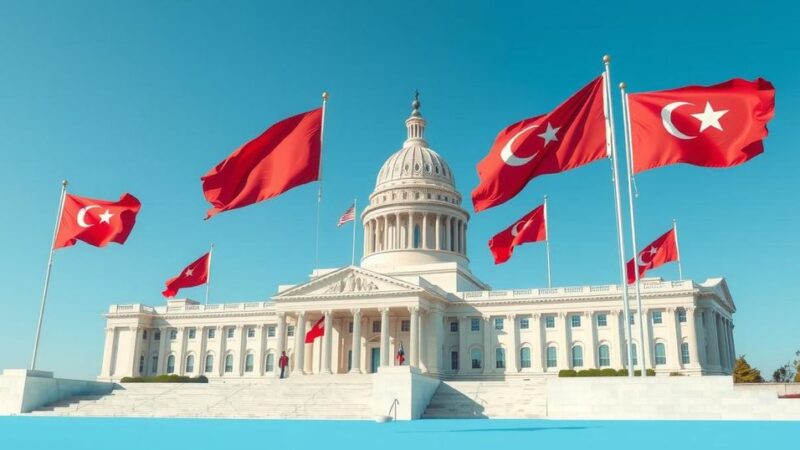Nigeria has detained seven Polish nationals for displaying Russian flags during protests against economic hardship in Kano. The Polish individuals, including students and a lecturer, were arrested amidst growing dissatisfaction over the country’s economic status. The display of Russian flags during protests is a newfound phenomenon in Nigeria, reflecting a shift in public sentiment and raising concerns about anti-Western feelings. The Nigerian military has described such actions as potentially treasonous.
In a significant turn of events, Nigerian security forces have detained seven Polish nationals during economic hardship protests in the northern region of Kano. The individuals were apprehended for displaying Russian flags, which has raised concerns regarding their involvement in protests that have erupted across Nigeria, a nation grappling with its worst cost-of-living crisis in decades. Peter Afunanya, a spokesman for Nigeria’s secret service, clarified during a diplomatic meeting in Abuja that these individuals were arrested because of their location during the protests and the flags they were displaying. However, details concerning their active participation in the protests have yet to be confirmed. The Polish Ministry of Foreign Affairs indicated that among those detained are students and a lecturer and that steps are being taken to determine the circumstances surrounding the incident. The protests, predominantly led by youth, were sparked by widespread discontent over economic conditions and perceived governmental failings. During these demonstrations, the appearance of Russian flags has prompted alarm, with observers noting that such displays have typically been associated with countries experiencing political upheaval and shifting allegiances away from Western influence. Some participants in the protests, including a teenager seen in viral footage, explicitly appealed for Russian assistance, thus highlighting a troubling trend of growing pro-Russian sentiment in parts of Africa. Nigeria’s military leadership responded firmly to these incidents, with Chief of Defence Staff Christopher Musa emphasizing that such displays could amount to treason, punishable under Nigerian law, should they be perceived as inciting foreign intervention. In light of these developments, the Nigerian secret service has also taken action against those who were reportedly producing Russian flags and any individuals suspected of financing their distribution. While efforts to address the situation regarding the Polish nationals are underway, Mr. Afunanya reassured that there is no targeted operation against Polish citizens, suggesting a collaborative approach may be pursued to resolve the matter.
The current context of Nigeria’s economic landscape is marked by severe inflation and widespread dissatisfaction among its populace, leading to nationwide protests calling for governmental accountability. The appearance of foreign flags during domestic unrest is particularly notable, as it indicates a pivot toward expressing solidarity with others amid perceived local failings. The relationship between Nigeria and Russia has historically been complex, and the current climate reflects the shifting sentiments in public opinion, especially within the youth demographic. Analysts have articulated concerns regarding the implications of such expressions, which may indicate a deeper shift in geopolitical views among African nations in response to Western pressures and influences.
In conclusion, the detention of the Polish nationals underlines the delicate intersection of protests, national identity, and foreign influence in Nigeria. The display of Russian flags amidst significant economic discontent points to a potentially transformative moment in the country’s sociopolitical fabric. The response from both Nigerian authorities and Polish diplomats will be crucial in navigating this incident, as it raises broader questions about foreign intervention and national sovereignty in an increasingly polarized world.
Original Source: apnews.com






